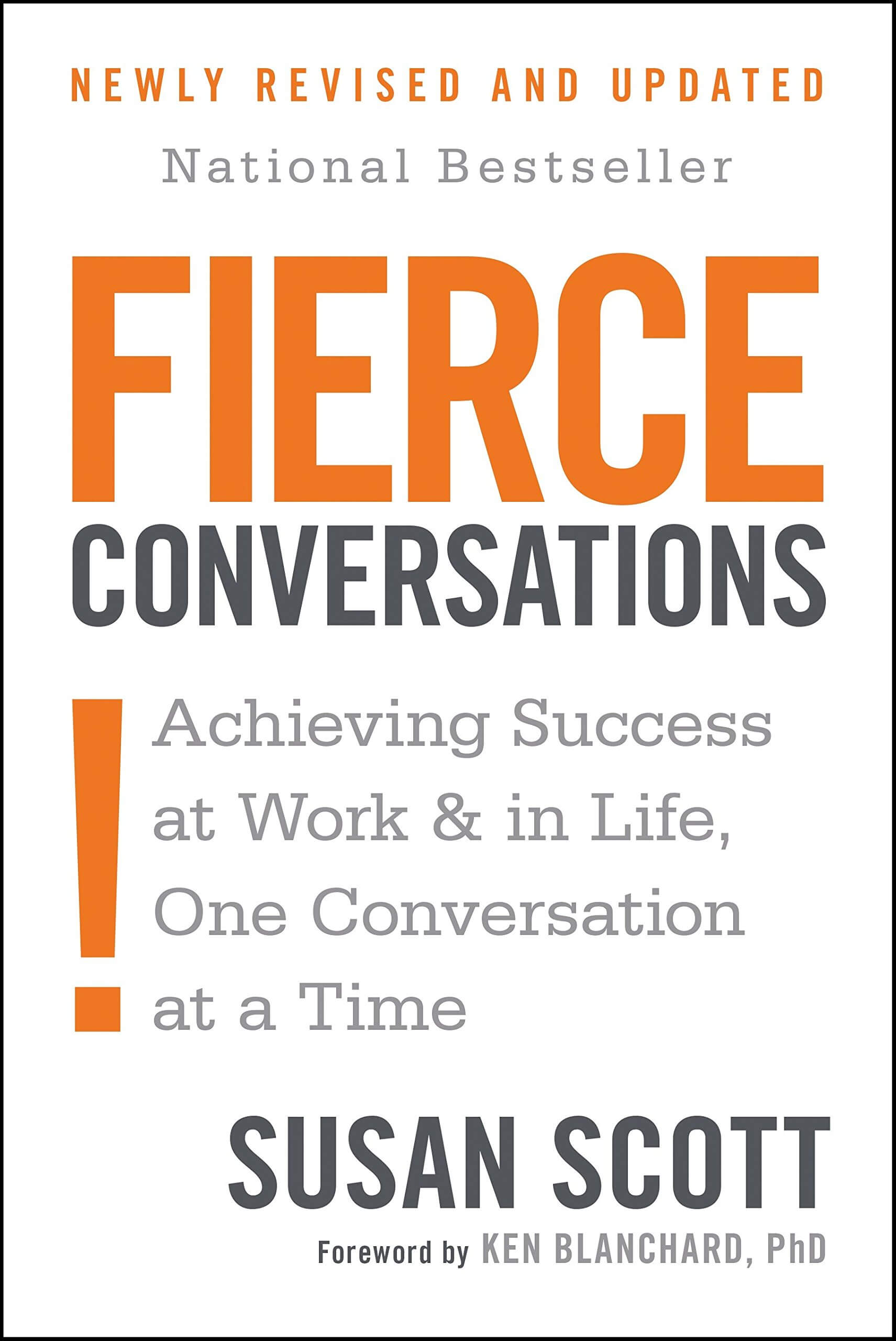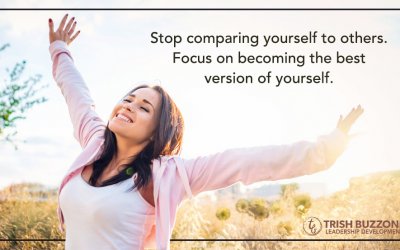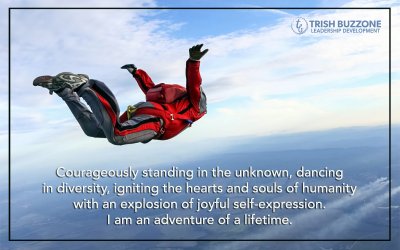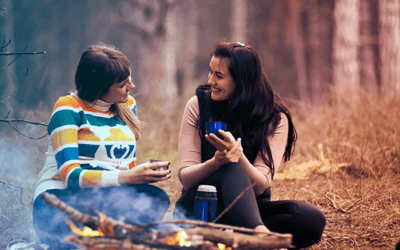I’ve been thinking about the emotional energy we exchange in our conversations and how this energy affects our relationships. That cause and effect reminded me of something I read in a book by Susan Scott called Fierce Conversations: “The conversation is not ABOUT the relationship. The conversation IS the relationship.”
That was such an ‘aha!’ moment for me. When we get hung up on what we’re talking about, we miss that the engagement itself is the relationship, and that these conversations affect the flow of how we relate, how we understand, and how we connect with each other.
Scott describes how our conversations transfer positive or negative emotional energy using the illustration of a speedboat creating a wake. Every conversation creates an emotional wake, a flow of positive or negative emotional energy. Afterward, we feel something, which Scott calls “afterglow, aftermath, or aftertaste.” While we may not always connect those feelings with that conversation, we carry these feelings into other interactions.
So, how do we enrich our relationships through our conversations, sharing positive energy, even when the conversation is about a difficult or touchy subject? This begins with reminding ourselves, regularly, that the conversation is the relationship. As we apply that idea, it naturally causes us to take responsibility for the emotional energy we’re transferring. Here are three tools that have helped me with that habit, and I know they will help you too.
The first tool is to practice the conversation before the conversation. Because it’s so easy to be misunderstood and unintentionally hurtful, especially when there’s upset or confusion, it helps to have a conversation with ourselves before we have a conversation with someone else. For me, that begins with asking, “How am I enriching this relationship?” and following that up with “How can I do so with this conversation?” Every conversation will have a crossroads, a point at which everyone is better, someone is better, or no one is better, because of that conversation. When I take responsibility for helping everyone in the conversation be better, I am more aware how that conversation is helping or hurting the relationship.
That awareness is the next tool to create that positive wake. It asks the questions, “What am I really saying to the other person?” and “What are they really wanting to say to me?” These questions cause us to listen with more intention, shifting our focus to include both what we’re wanting in the conversation and what the other person wants or needs. In unpacking this idea, Scott refers back to the speedboat. The pilot should mind their speed, not because they don’t have the right to pilot the boat where they please, but because their speed will affect other boats. If we speed through a No Wake Zone, we may cause damage, and when we speed through a conversation without intentional awareness, we may transfer negative emotional energy.
Third, when we take responsibility for the emotional wake in our conversations, we learn to stop making loaded statements. These include blaming, name calling, assigning labels, sarcasm, exaggerations like “this ruins everything,” or accusations such as “you always do that” or “you’re saying this, but what you really mean is…”
When we avoid these loaded statements and, instead, use connective, inviting language that shows a desire to understand and appreciate the other person, we create a positive flow of energy, even in the midst of a difficult conversation. This positive wake will continue to ripple out, flowing between that conversation and the next, building the foundation for better, healthier relationships.
A version of this article was originally published in the April 2021 issue of Sandpoint Living Local / Coeur d’Alene Living Local.
Why I Value Thinking Partners
Why I Value Thinking PartnersTrusted people who encourage a higher level of awareness increase our capacity to think clearly, to act intentionally, and to lead effectively As we all transition into a world indelibly changed, much of the conversation around...
Where Our Focus Goes, Our Energy Flows
Where Our Focus Goes, Our Energy FlowsWhatever the circumstances, what we think and who we choose to be makes all the difference Sometime around March 2020, life as we know it went off the rails. As the number of coronavirus cases grew, businesses closed,...
Will you courageously stand in the unknown?
Thinking partners make a huge difference in our lives. Even when we don’t immediately need them, there’s comfort in knowing we have people we trust to go to with our questions and concerns. But what about those times when there is no trusted advisor around...
Do you have dogs?
Do you have dogs? How an unexpected question transformed intention into action Recently, a friend shared with me how an unexpected question helped him move from intention to action. After role shifts in his career and at home, he’s been struggling to, as...
Are you choosing to actively listen?
When we listen TO someone, we hear what they are saying, and we often miss WHY they are saying it. The meaning behind the words reveals who the person is being in that moment. Are they frustrated or hopeful, determined or resigned? Are they focused on...
Creating the Gap
Creating the Gap It is impossible to be who we want to be while holding tightly onto who we are. We have all heard people say, “If you can imagine it, you can become it!” And that’s true. It’s also true, that if we don’t build the structure to...









0 Comments